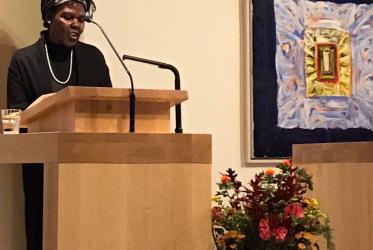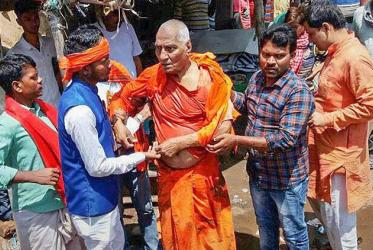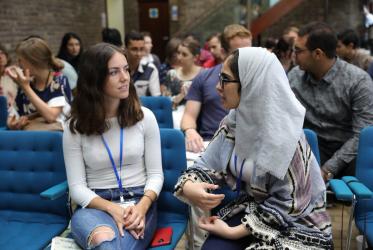Displaying 61 - 80 of 215
Peace is common denominator of all major religions
05 March 2019
Fr Alexi - a peacemaker in Syria
21 December 2018
A moment in ‘Time’: an interreligious vision in Erlangen
20 December 2018
WCC moderator receives honorary doctorate from university in Norway
10 November 2018
Romani people seek “lives of decency, dignity, and justice”
27 September 2018
Paving the way for ecumenical studies, learning English in Bossey
24 September 2018
#WCC70: Nathan Söderblom, ecumenical pioneer
29 August 2018
Unifying faiths in peace and harmony through dialogue
10 April 2018











